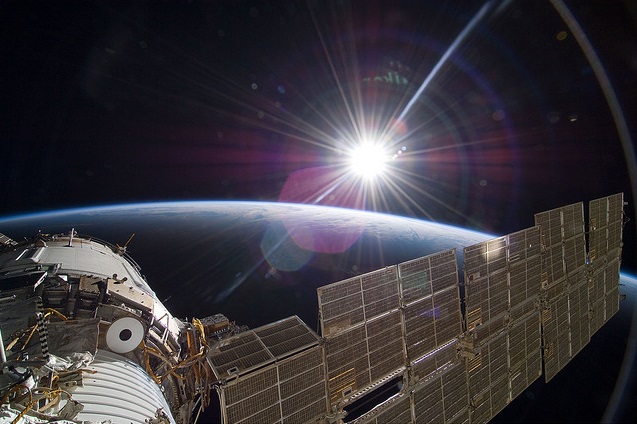ASPI suggests
Stuck without a good read for over the weekend? Look no further than this week’s ASPI suggests, brought to you all the way from balmy Canberra.
The Iran Deal is certainly the flavour of the month. Bound to be one of the biggest lynchpins in the upcoming US presidential election, the Joint Comprehensive Plan of Action (JCPOA) is complex, lengthy, and comes with a huge list of pros and cons. Head over to the Carnegie Endowment for a look at Parsing the Iran Deal—an analytical piece, complete with detailed infographics, that examines the background, benefits and risks of the Deal from a non-proliferation perspective.
Looking to the east, the significance of next month’s Chinese military show in Beijing hasn’t been lost on The Economist. While reminding the Chinese public of the bravery of Chinese soldiers who lost their lives in conflict with Japan between 1937 and 1941, the parade, with its arsenal of missiles, tanks and soldiers, is just as much about the future of the Asia–Pacific—and this sentiment hasn’t been lost on China’s neighbours. In the lead up to the event, have a look at Congressional China Caucus: an initiative of the US House of Representatives members with an interest in the political, military and economic aspects of China’s rise.
With much of our focus drawn to rising tensions in the Asia–Pacific and the Middle East, it’s always refreshing to gain some perspective on other hotspots around the globe. We’d recommend checking out morethanwars—a unique blog by PhD candidate Alexandra Phelan that examines conflict, security and peace in Latin America. Her latest post examines the potential resurgence of Peruvian terrorist movements Shining Path in the wake of the recent rescue of 54 adults and children from ‘one of the most violent and dangerous insurgencies in the world’.
Back in June, the Pentagon published new guidelines on its interpretation of the law of war. The first of its kind, the massive document likens reporting on military operations to spying, claiming that war journalism has the potential to ‘reveal sensitive information to the enemy’. Two months later, The New York Times has struck back, claiming that by encouraging senior military and government officials to adopt this view, the Pentagon is severely damaging press freedom, and that despots could use this standard as justification for the inhumane treatment of journalists in their own countries.
Closer to home, the Campaign for an Iraq War Enquiry has released its perspective (pdf) on the political machinery which determines if Australia should go to war. The authors, who include the late Malcolm Fraser, refer to John Howard’s decision to take Australia to war in 2003 as an argument for placing this decision-making power in the hands of the Australian Parliament, rather than the Prime Minister.
And finally, in what’s been described as ‘one small bite for man, one giant leaf for mankind’, the first intergalactic salad has been dished up on board the International Space Station. Astronauts, including Scott Kelly, who’s living in the station for one year (check out his out-of-this-world Instagram account here) enjoyed a crop of red romaine lettuce on ‘cheeseburgers’ last Monday. The success of this project has opened up a new frontier for NASA, who plan to grow food on other spacecraft—and, maybe one day, planets—as sustenance for astronauts a long way from home.
Podcasts
For a great overview of Japan’s national security policy, its future in a tumultuous Asia–Pacific and ‘Abenomics’, check out the AsiaConnect briefing call (50 mins) by Asia Society Policy Institute President Kevin Rudd. Referring to the Defence of Japan 2015 report, which was published last Friday, Rudd argues that Japan’s most significant strategic challenge in the near future is….China.
Videos
A new virtual reality (VR) film made by activist news organisation Ryot depicts life in the war-torn streets of Aleppo. The short film (3 mins), Welcome to Aleppo, was shot in the ruined Syrian city last month, and aims to help viewers experience and understand every-day occurrences for Syrian locals, like the sound of a bullet whizzing past their head. Christian Stephen, Ryot’s global editor, says that VR will become a tool to help communicate real-life stories of hardship around the world that desperately need publicity.
Events
Canberrans: The United Nations Association of Australia’s 2015 National Conference, which will look at topics ranging from terrorism to climate change, kicks off on 20 August, and features a stellar line-up of speakers across the two days, including Gareth Evans and Gary Quinlan. Book your tickets here.
Sydney-siders: A big few weeks at the University of Sydney ahead, with two exceptional public lectures on China to mark in your calendars. The first, on US–China relations and what they mean for Australia, features USSC’s Bates Gill and will take place on 25 August. The second, will be delivered by Chien-wen Kou from National Chengchi University on 1 September, and will focus on the success of Xi Jinping’s anti-corruption campaign, and how it’s helped him to concentrate his power.

